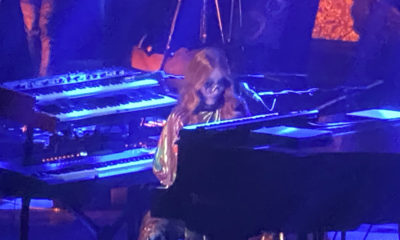Arts & Entertainment
Girl reappearing
Tori Amos celebrates 20th anniversary by revisiting her catalogue

Tori Amos is straight but has a strong LGBT fan base. The Blade’s Joey DiGuglielmo is a long-time fan, having worn out a copy of “Boys for Pele” in the throes of closeted college-era angst. He talked to her by phone two weeks ago to talk about her new album “Gold Dust,” which features orchestral re-workings of 14 of her songs. It’s slated to drop Tuesday in the U.S.
Blade: Hi Tori
Tori Amos: Hi, how are you?
Blade: I’m good. I’m gonna try to cover a lot of ground really quickly so I’m just gonna jump right in. Tell me a little about the relationship you have going with Deutsche Grammophon. This is your second project with them. Are you under contract or are you just doing things on kind of an album-by-album basis?
Amos: Kind of album by album. … They came up with the idea of the variations on the masters (last year’s “Night of Hunters” album) but when I’d been working with the Metropole Orchestra the year before and they basically said, “We need recordings of this. This is the 20th anniversary of your work and this is how you do it with an orchestra.” I didn’t know, at first, if that made sense, but it seemed to make sense in their German minds. So it’s been very organic.
Blade: I’m just wondering how some of these arrangements came about and thinking back to some of those great remixes you had of your stuff back in the late ‘90s. Obviously I know remixing is a whole different thing altogether, but in terms of crafting symphonic arrangements or reworkings of your songs — where these songs are very much living in an alternate space from their original studio versions — I’m wondering if any of the same artistic considerations or principles apply as would if you’re crafting an alternate version in the form of a remix.
Amos: Wow, that’s a great question. I guess the thing about a remix is you don’t have to retain the narrative or even the spirit of the original work in the same way. So the “Professional Widow” remix, for example, became a very different expression of the song from the original. Some of that narrative was there but not the way it was on the (album version). And yet the remix still clearly did its job. But in doing something like this, you don’t want to lose the song’s story or her narrative in any way, so it was important to really, and sometimes very subtly, make changes. Some of the songs didn’t want a makeover. Some of them said, “Only strings,” or others said, “We’re open to a full orchestra but we don’t want to become completely overtaken.” It was almost like you were changing their outfit, but you were not changing their soul. Some were open to a more radical flavor. Like with “Flavor,” for instance, which was originally recorded with loops, it really stepped forward and said, “I want a completely different approach.” Or with “Precious Things.” It kind of said it thought its narrative could work with a more Prokofiev-inspired approach.
Blade: What was the time frame for this album?
Amos: I was rehearsing (with the Metropole Orhestra) for shows in October, 2010 and then we got back together in early 2011 and began recording some, but then we put it away because we went and did “Night of Hunters” with the octet. So that project came first, even though this was the first idea. Then we put the (“Gold Dust”) reels back on, I’d say maybe January 2012 and … began editing them together. Overdubs and mixing were finished in July.
Blade: Classical musicians can be notoriously snobby. Did you get any vibe from the Metropole players, even if they never said anything, that they were thinking, “Why are we doing this — can’t somebody bring us some Beethoven or something?” You do all kinds of stuff, obviously, but the grand scheme of things, your songs would be considered in more of the pop idiom than classical.
Amos: It was really a collaboration with them and I think the reason Alex (Burh, the Deutsche Grammophon exec who suggested “Night of Hunters”) suggested it is because he could tell there was a real conversation happening during the rehearsals (for the 2010 concert). There was definitely an affinity and a back-and-forth-type thing that was going on and I think that was why the decision was made to document and record it. There was a chemistry.
Blade: You’ve done a few theme projects now — a holiday album, some concept albums, a classical album, now orchestral reworkings of your songs. Do you have a private bucket list of stuff you want to eventually do? I’m not even necessarily asking what all those projects might be, but do you think, “Well, before I hang up my hat, I definitely want to do — blank.” Does your artistic mind work that way?
Amos: Yes, it thinks that way. I think right now I’m really focused on the musical, “The Light Princess.” Nick Hytner is very much a powerful force at the National Theatre in Great Britain and so hopefully the plan or the idea is that the piece will be ready to get put on its feet within, oh I don’t know, a year, maybe a little over a year. That’s what I have on my brain right now. But yeah, I approach things as a conceptualist and there are all kinds of thoughts that have come into my mind. I would love to someday do something where I just stay someplace and perform. I don’t know if you’d call it an evening in Las Vegas or what, but with a story and dancers. I would love to do something at Caesar’s Palace someday. And not just campy, you know, but maybe a bit of camp, but I love the idea of having dancers — not me dancing, I would be playing and singing — but have some dancers onstage and just make it an incredibly entertaining evening. Very much an old-school variety show with great costumes and an old Hollywood feel. Something like from the ‘30s or ‘40s where you get dressed up and come to a show and have dinner and walk away feeling like you’ve had a really glamorous evening.
Blade: Well, I would definitely come see it, that sounds fun. One thing I’ve always really admired about you is that you don’t always make things easy on the fans or present the material in such a way that it’s easy or accessible for the most casual fan, to say nothing of the material itself. I’m talking about things like those Icon or Playlist anthology CDs where they throw them together for all kinds of artists and make them something that’s meant to be a $7.99 impulse purchase in the checkout lane at Target. You never do things like that. And I’m not even saying it’s necessarily a bad thing ….
Amos: (interjects) … It is bad.
Blade: OK, why? Couldn’t you argue that it might pique someone’s curiosity and inspire them to then go dig deeper?
Amos: I’m telling you, it’s sinning against your art. That’s what you’re doing. It’s lazy.
Blade: Do you have business people approach you with these kinds of ideas?
Amos: Well, you know. There are all kinds of ideas that get spun about. But you have to have it in your head whether it’s a good idea or not. How are you going to feel about it in three months, in six months? What kind of statement does it make about you as an artist? And hey, sometimes I understand why they release these anthologies because something like (“Gold Dust”), I mean this takes a LOT of time to do. We started October 2010 so we’re talking two years from inception to this. It started with them inviting me to come play a show but it didn’t matter if it was one show or 200 shows or if we recorded the arrangements or not, the work still had to be done. The arrangements still had to be made for, like, 20 songs. (Arranger) John Philip Shenale and I were in touch everyday about this for one show, which is all I initially thought it was going to be. Not for one second did I think this would end up being a studio album. They invited me for this before the Alex, the German musicologist, invited me to come start messing with the masters. So that was the genesis and the time frame and doing a project like this with an orchestra is really tricky because people have attachments to the original versions. You really want to retain the soul of the song girl and like I said, some didn’t want extreme makeovers. That wasn’t really the challenge. It’s not about trying to shock people or try to decide how different you can make it. That’s almost too easy. It’s easy to shock people that way, to turn something totally on its head. I think what’s much trickier to do is to subtle because subtle changes can also become real banal and lifeless if you’re not careful.
Blade: I interviewed Sophie B. Hawkins a few weeks ago, who has a fabulous new album out by the way. I highly recommend it. I’m wondering if you feel any sense of sisterhood or artistic kinship with other women who came along in the ‘90s about the same time you did. You’ve managed to continue to forge ahead against the odds, while so many artists from that time have seen their audience dry up or move on. What advice would you give to other women who are highly talented musicians and still feel they have something great to offer?
Amos: It is really tough out there and it’s culturally tough because the masses seem to be gravitating to the next people and artists are seen as very disposable. They want to move on to whomever is next instead of growing with them. I have always wanted to grow with the artists and jump on the train with them. I wanted to know what they were experiencing and wanted to be seen as their patron. That’s how I think of my audience — I very much see them as my patrons, the people who come to my shows. Because without them, I couldn’t keep going. Also, philosophically, people seem to be of the mindset often, that it’s OK to just take something. I would never go to a wine show and slip a bottle of wine in my bag when the vendor wasn’t looking but people have talked themselves into thinking that that’s OK. Meanwhile orchestras are shutting down and you have … very accomplished musicians thinking about how they’re going to make a living doing their art. This is what I’m hearing from a lot of musicians. Do I have an answer? No, I don’t. I think it’s a cultural crisis.
Blade: Isn’t it partly short attention spans too?
Amos: Well yes, that and not wanting to grow. I would like to say that eventually people will realize how sad it is and that it will turn itself around but one of the reasons for the short attention spans is these shows where the next crop is waiting in the wings for its 15 minutes. These shows are making a lot of money but they don’t care about these singers. All they care about is the next show. Nobody is nurturing these artists.
Blade: A lot of people tape your shows and trade them around. Are you OK with that as long as they’re not trying to profit off them? Say they couldn’t make it to the show in Denver and you did this new song — which has always been one of the cool things about you, that your set list changes all the time.
Amos: I don’t have a problem with that but please, use good mics! Now obviously, if you’re trying to sell it, then I have a problem. I think my community knows how it goes. They know where I stand on stuff like that. I’ve even had people tell me they knew somebody who fell on hard times and couldn’t go to one of the shows. OK, but one day when you can, give back. I support the arts. Like visual artists — I go to galleries and support artists all the time.
Blade: I have a somewhat self-indulgent question I’m gonna squeeze in here but maybe it will apply to some other fans too. I play in a church so the challenge really becomes digesting so much new music all the time. What advice would you give to a church pianist or organist where there’s never time to polish anything or let it settle into the brain or fingers before you’re onto the stuff for next Sunday?
Amos: I think you should all be revisiting things on some kind of a rotating schedule. So maybe you revisit something, say, three months later and it becomes part of your repertoire and that way you develop a repertoire. I don’t think things just have to be performed one time. People will say, “Oh, I recognize that, I like that piece.”
Blade: I guess the cynic in me thinks they’ll think, “Oh, that again — he must have had a busy week.”
Amos: Well, OK, I guess some might think that but you can’t lie to yourself. The only other thing you can do is carve out more rehearsal time for yourself, but yeah, I can imagine it is tough.
Blade: Are you a keeper by nature? Do you have clothes from old video shoots and, like, all the “Doll Posse” wigs and stuff like that?
Amos: Yes, I have all that. And yes, (daughter) Tash dresses up in them all the time.
Blade: How many pianos do you own?
Amos: Well that’s tough to say because I have a deal with Bosendorfer so I can trade them out.
Blade: I can’t imagine what your tuning bill must be.
Amos: Well, we have different tuners in different countries. The Bosendorfer at the beach house in Florida, we have this lovely lady who has this twinkle in her eye. And then there’s the one where we record in Cornwall. But Ann has gotten the Florida one where it doesn’t need as much because it’s not being recorded. She’s really got it stable right now and it’s not being moved, so it tends to hold its tuning pretty well. When we’re recording, we tune once a week.
Blade: I love the new album, thanks so much for your time.
Amos: You take care honey, thanks.
a&e features
Transmission DC breathes new life into a storied sound space
A fresh home for boundary-pushing culture on H Street

Late last year, phoenix-style, a fresh home for boundary-pushing culture arose on the H Street corridor. Transmission DC – a queer, trans, and POC-owned, operated, and centered community-focused venue – powered on in the former home to the Rock & Roll Hotel (famously, not a hotel, but very much rock & roll). Transmission (1353 H St., N.E.) arrives secure in its mandate – or even birthright – to provide a place to celebrate creativity and music through a lens of inclusivity and respect.
Transmission’s team brings experience, but also representation. Owners/partners Kabir Khanna (who is also programming director), Katii B, Ellie McDyre, and Kelli Kerrigan together previously managed 618 productions, a venue in Chinatown, crafting “some of D.C.’s freakiest parties, raves, and mosh pits” they note.
They packed up operations last fall to a space curated specifically for D.C.’s underground music and culture scene, building their efforts in Chinatown to bring in more fans in queer and POC circles.
Transmission, Khanna points out, is built on DIY values. In the music scene, DIY means that promoters and organizers – often disconnected from the mainstream and part of marginalized communities – build shows and programs collaboratively, but independently from institutions, supporting each other as smaller, independent venues close. Here, Transmission aims to ensure that those putting together these underground inclusive shows have a more permanent and stable home, can have access to resources, and can provide more sustainable income to artists. “We’re trying to get more people to support and enjoy the music, and also give artists and organizers within the DIY community more structure and a larger cut,” says Khanna.
Khanna also notes that Transmission operates “under the principles of safety, inclusivity, and respect.” McDyre added that even at venues that claim inclusivity, that statement might not take place in practice. We’re “not just pitting up a rainbow flag,” says McDyre, but as some of the owners are trans and POC, audiences can see themselves reflected at the top.
Much like the DIY nature of the music community, the Transmission owners brought a DIY ethos to turning around their space.
In March 2020 – the height of COVID lockdowns – Rock & Roll Hotel suddenly shuttered, though not due to the pandemic; instead, the venue claimed that decreasing sales and increasing competition led to the closure. For 14 years, it was the central spot for cheap beer and lesser-known and celebrated acts. The space stood vacant for more than five years, until Transmission turned the power back on.
“When we got into the space, it was effectively abandoned for years,” says Khanna. “There was a ton of mold, and paint primer covering all surfaces. It was nearly falling apart.” Khanna noted that many music venues like this one, regardless of how well it was maintained, “get the shit kicked out of it,” given the nature of shows. The team called in mold removal contractors, ripped up most of the floorboards, and started fresh.
Transmission’s first floor is styled as a stripped-down black box: the better to take in the music. “It’s minimal on purpose to act as a canvas for set design and music,” without a specific aesthetic, says Khanna. Moving upstairs, the second floor has been opened up, removing some walls, and now has a larger dance area than the first floor. Beyond the first two performance levels, and a holdover from Rock & Roll Hotel, is the rooftop. Though without a stage, the rooftop space is filled with murals splashed across the walls, with a full bar. Transmission’s current capacity is 496, but the team is looking to grow that number. Transmission will also leverage the full kitchen that Rock & Roll Hotel operated, bringing in Third Hand Kitchen to offer a variety of food, including vegan and vegetarian options.
Khanna pointed out an upcoming show reflective of Transmission’s inclusive ethos: Black Techo Matters on Feb. 27. The event is set to be “a dynamic, collaborative night of underground electronic music celebrating Black History Month.” Khanna says that techno came from Black music origins, and this event will celebrate this genesis with a host of artists, including DJ Stingray 313, Carlos Souffront, and Femanyst.
Movies
Moving doc ‘Come See Me’ is more than Oscar worthy
Poet Laureate Andrea Gibson, wife negotiate highs and lows of terminal illness

When Colorado Poet Laureate Andrea Gibson died from ovarian cancer in the summer of 2025, the news of their passing may have prompted an outpouring of grief from their thousands of followers on social media, but it was hardly a surprise.
That’s because Gibson – who had risen to both fame and acclaim in the early 2000s with intense live performances of their work that made them a “superstar” at Poetry Slam events – had been documenting their health journey on Instagram ever since receiving the diagnosis in 2021. During the process, they gained even more followers, who were drawn in by the reflections and explorations they shared in their daily posts. It was really a continuation, a natural evolution of their work, through which their personal life had always been laid bare, from the struggles with queer sexuality and gender they experienced in their youth to the messy relationships and painful breakups of their adult life; now, with precarious health prohibiting a return to the stage, they had found a new platform from which to express their inner experience, and their fans – not only the queer ones for whom their poetry and activism had become a touchstone, but the thousands more who came to know them through the deep shared humanity that exuded through their online presence – were there for it, every step of the way.
At the same time, and in that same spirit of sharing, there was another work in progress around Gibson: “Come See Me in the Good Light,” a film conceived by their friends Tig Notaro and Stef Willen and directed by seasoned documentarian Ryan White (“Ask Dr. Ruth”, “Good Night, Oppy”, “Pamela, a Love Story”), it was filmed throughout 2024, mostly at the Colorado home shared by Gibson and their wife, fellow poet Megan Falley, and debuted at the 2025 Sundance Film Festival before a release on Apple TV in November. Now, it’s nominated for an Academy Award.
Part life story, part career retrospective, and part chronicle of Gibson and Falley’s relationship as they negotiate the euphoric highs and heartbreaking lows of Gibson’s terminal illness together, it’s not a film to be approached without emotional courage; there’s a lot of pain to be vicariously endured, both emotional and physical, a lot of hopeful uplifts and a lot of crushing downfalls, a lot of spontaneous joy and a lot of sudden fear. There’s also a lot of love, which radiates not only from Gibson and Falley’s devotion and commitment to being there for each other, no matter what, but through the support and positivity they encounter from the extended community that surrounds them. From their circle of close friends, to the health care professionals that help them navigate the treatment and the difficult choices that go along with it, to the extended family represented by the community of fellow queer artists and poets who show up for Gibson when they make a triumphant return to the stage for a performance that everyone knows may well be their last, nobody treats this situation as a downer. Rather, it’s a cause to celebrate a remarkable life, to relish friendship and feelings, to simply be present and embrace the here and now together, as both witness and participant.
At the same time, White makes sure to use his film as a channel for Gibson’s artistry, expertly weaving a showcase for their poetic voice into the narrative of their survival. It becomes a vibrant testament to the raw power of their work, framing the poet as a seminal figure in a radical, feminist, genderqueer movement which gave voice to a generation seeking to break free from the constraints of a limited past and imagine a future beyond its boundaries. Even in a world where queer existence has become – yet again – increasingly perilous in the face of systemically-stoked bigotry and bullying, it’s a blend that stresses resilience and self-empowerment over tragedy and victimhood, and it’s more than enough to help us find the aforementioned emotional courage necessary to turn what is ultimately a meditation on dying into a validation of life.
That in itself is enough to make “Come See Me in the Good Light” worthy of Oscar gold, and more than enough to call it a significant piece of queer filmmaking – but there’s another level that distinguishes it even further.
In capturing Gibson and Falley as they face what most of us like to think of as an unimaginable future, White’s quietly profound movie puts its audience face-to-face with a situation that transcends all differences not only of sexuality or gender, but of race, age, or economic status as well. It confronts us with the inevitability few of us are willing to consider until we have to, the unhappy ending that is rendered certain by the joyful beginning, the inescapable conclusion that has the power to make the words “happily ever after” feel like a hollow promise. At the center of this loving portrait of a great American artist is a universal story of saying goodbye.
Yes, there is hope, and yes, good fortune often prevails – sometimes triumphantly – in the ongoing war against the cancer that has come to threaten the palpably genuine love this deeply-bonded couple has found together; but they (and we) know that, even in the best-case scenario, the end will surely come. All love stories, no matter how happy, are destined to end with loss and sorrow; it doesn’t matter that they are queer, or that their gender identities are not the same as ours – what this loving couple is going through, together, is a version of the same thing every loving couple lucky enough to hold each other for a lifetime must eventually face.
That they meet it head on, with such grace and mutual care, is the true gift of the movie.
Gibson lived long enough to see the film’s debut at Sundance, which adds a softening layer of comfort to the knowledge we have when watching it that they eventually lost the battle against their cancer; but even if they had not, what “Come See Me in the Good Light” shows us, and the unflinching candor with which it does so, delivers all the comfort we need.
Whether that’s enough to earn it an Oscar hardly matters, though considering the notable scarcity of queer and queer-themed movies in this year’s competition it might be our best shot at recognition.
Either way, it’s a moving and celebratory film statement with the power to connect us to our true humanity, and that speaks to a deeper experience of life than most movies will ever dare to do.
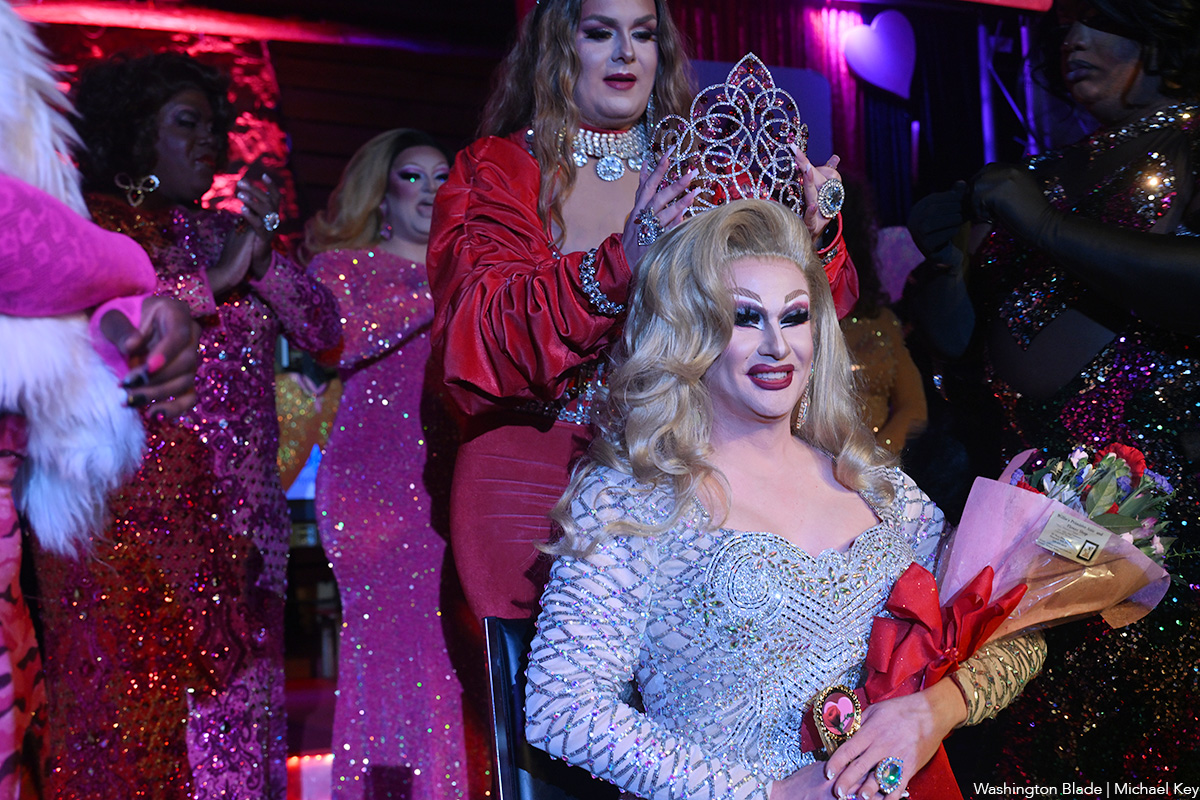
The 44th annual Queen of Hearts pageant was held at The Lodge in Boonsboro, Md. on Friday, Feb. 20. Six contestants vied for the title and Bev was crowned the winner.
(Washington Blade photos by Michael Key)
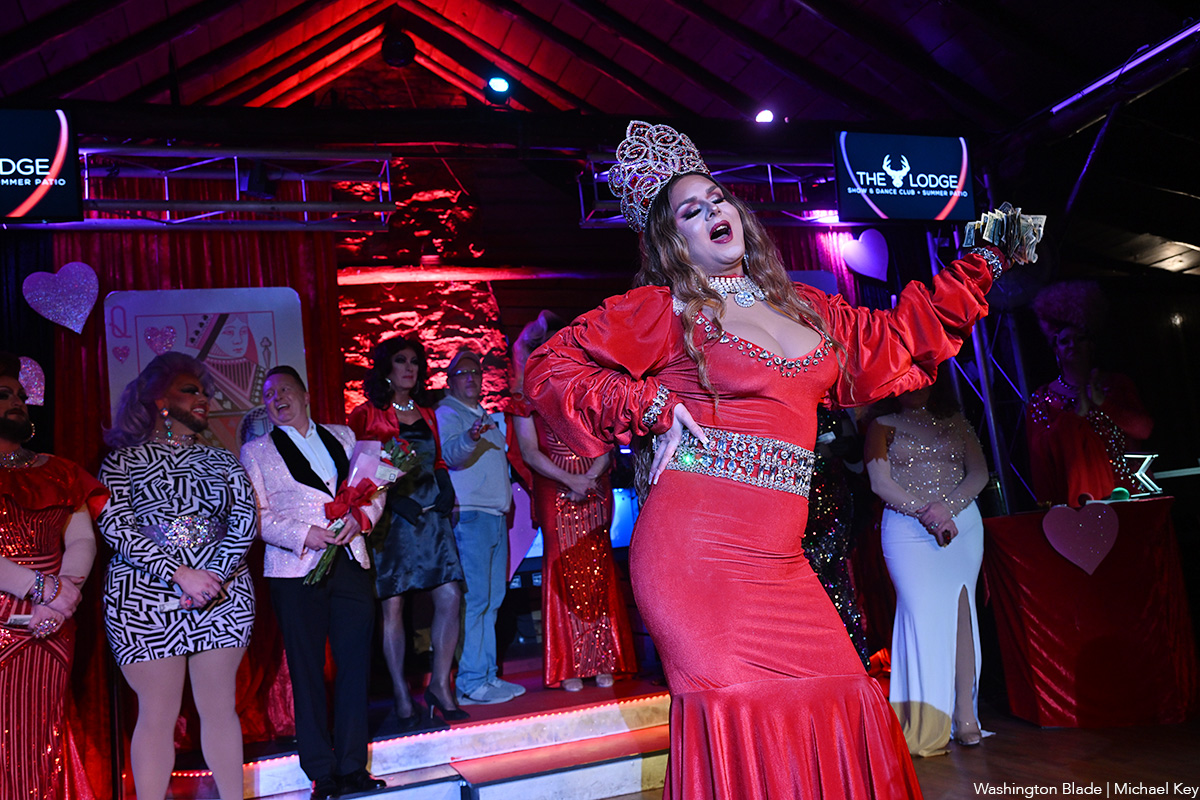
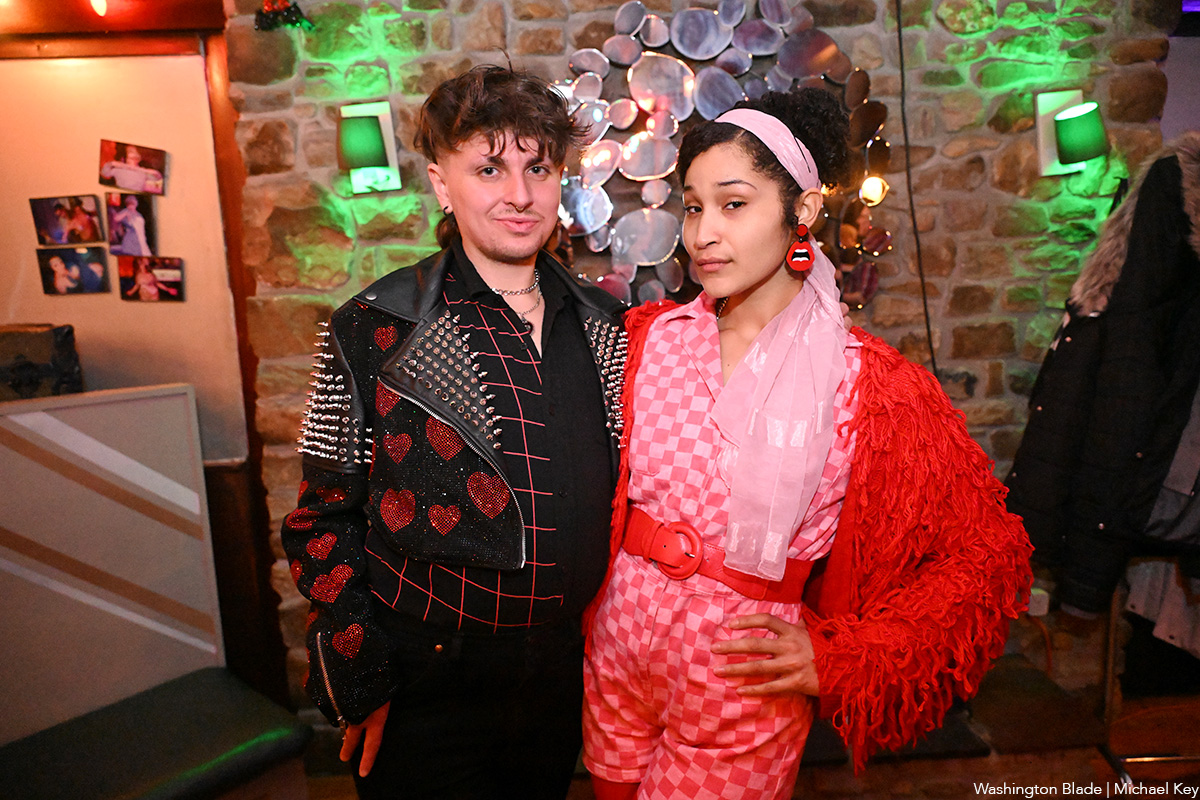
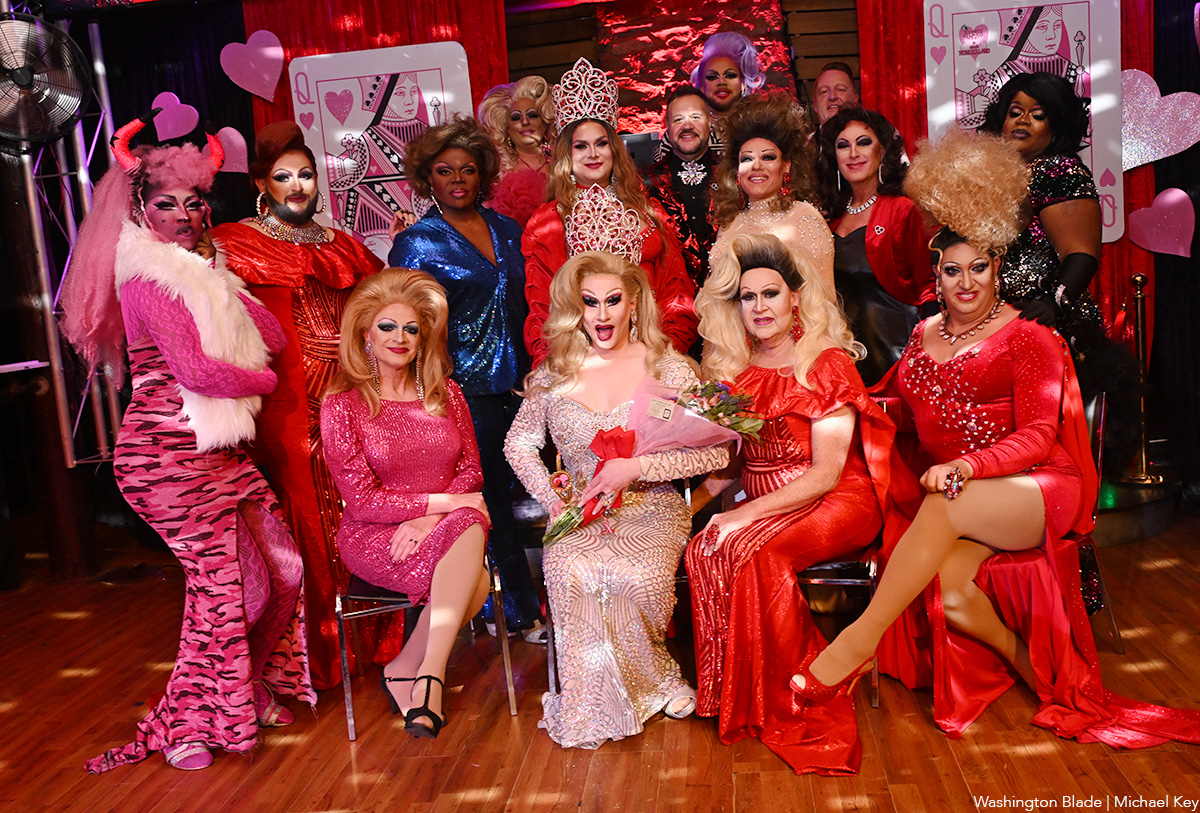
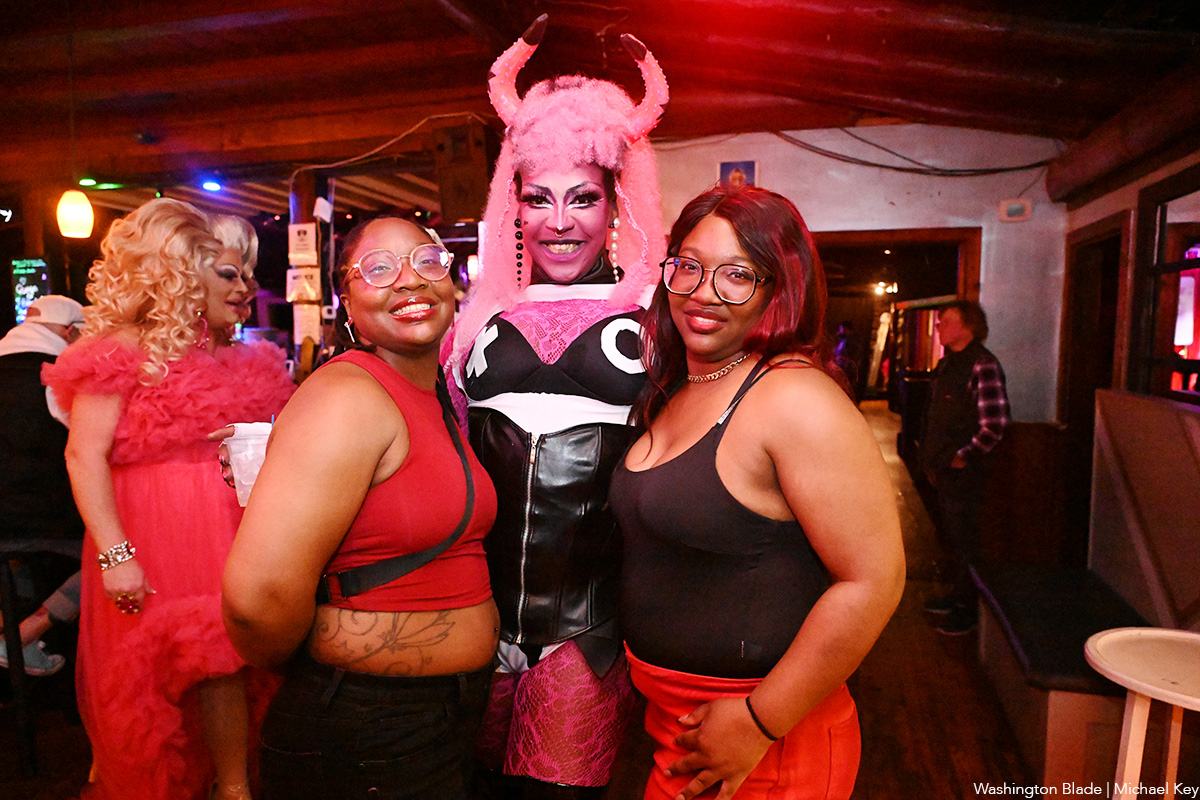
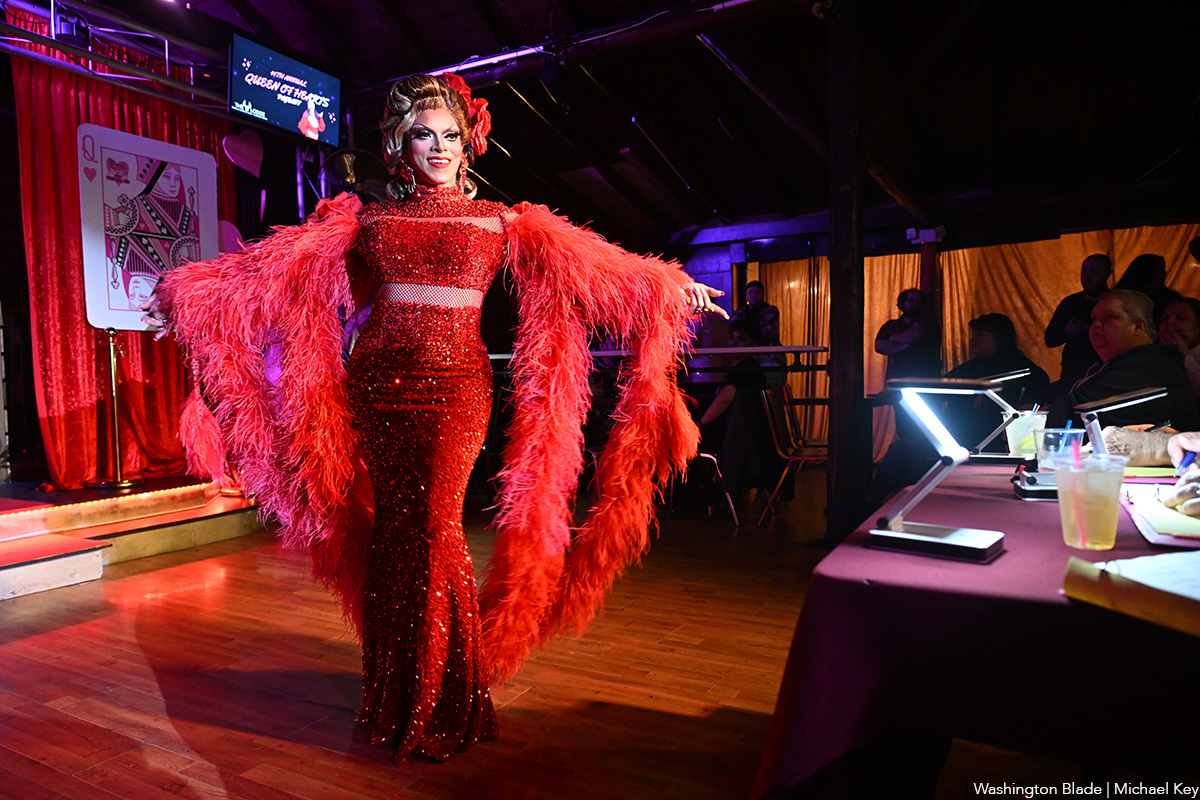
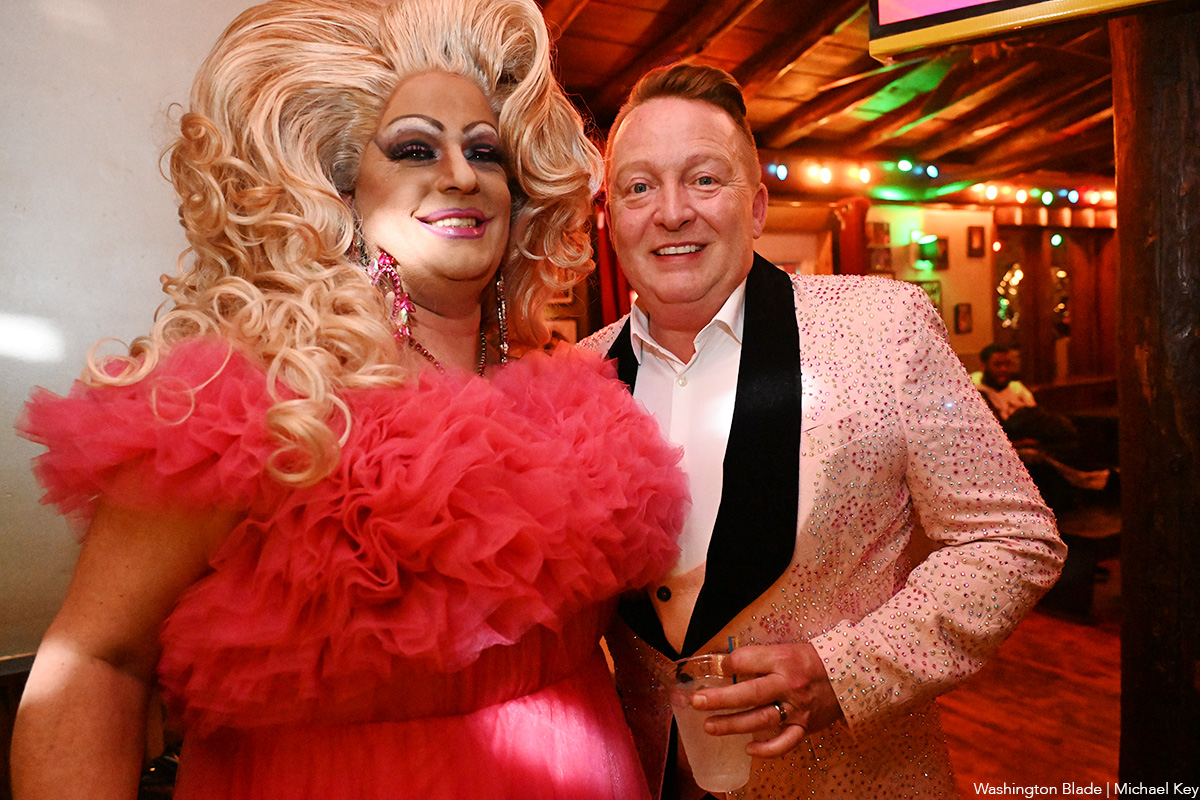
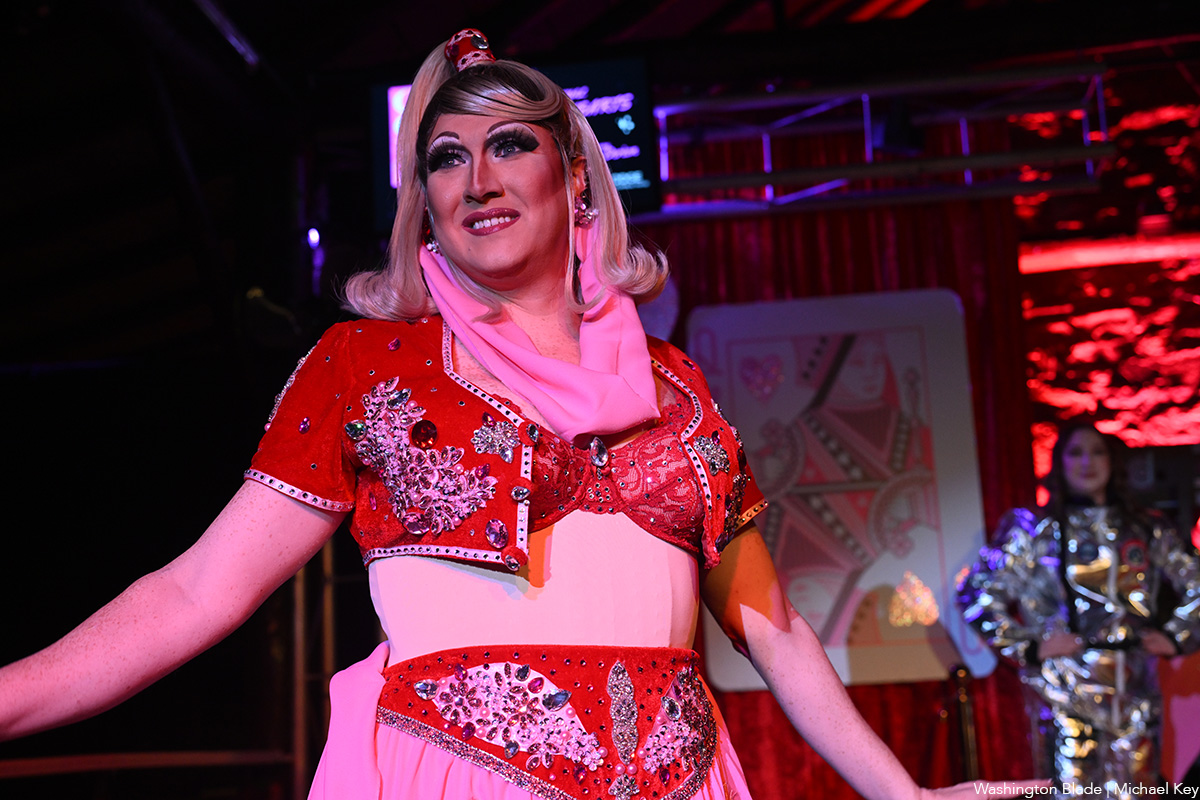
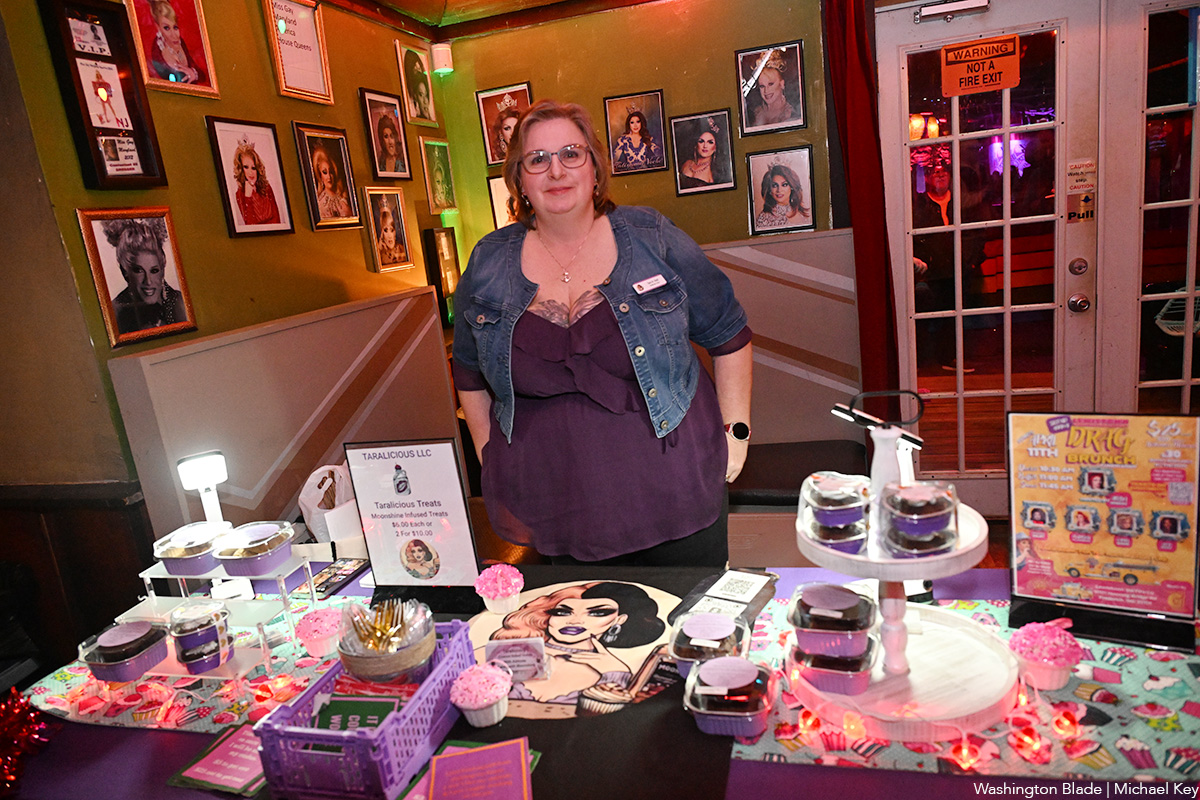
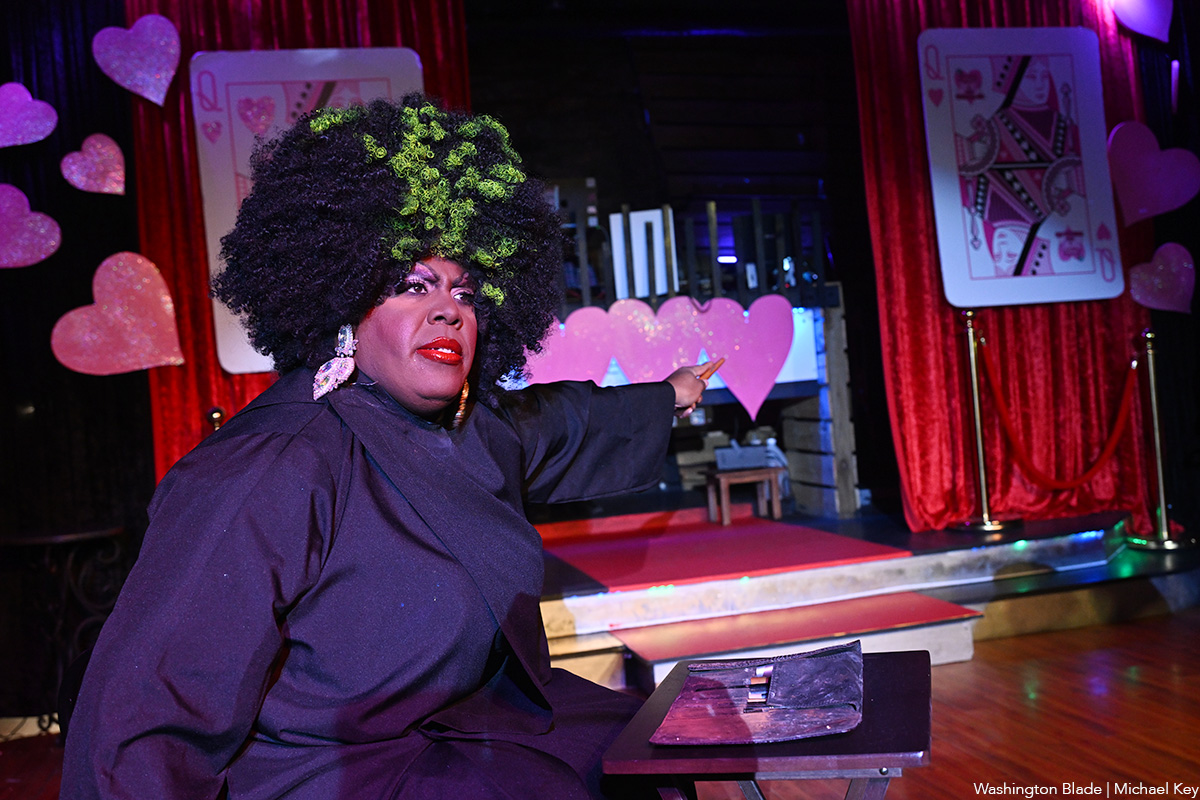
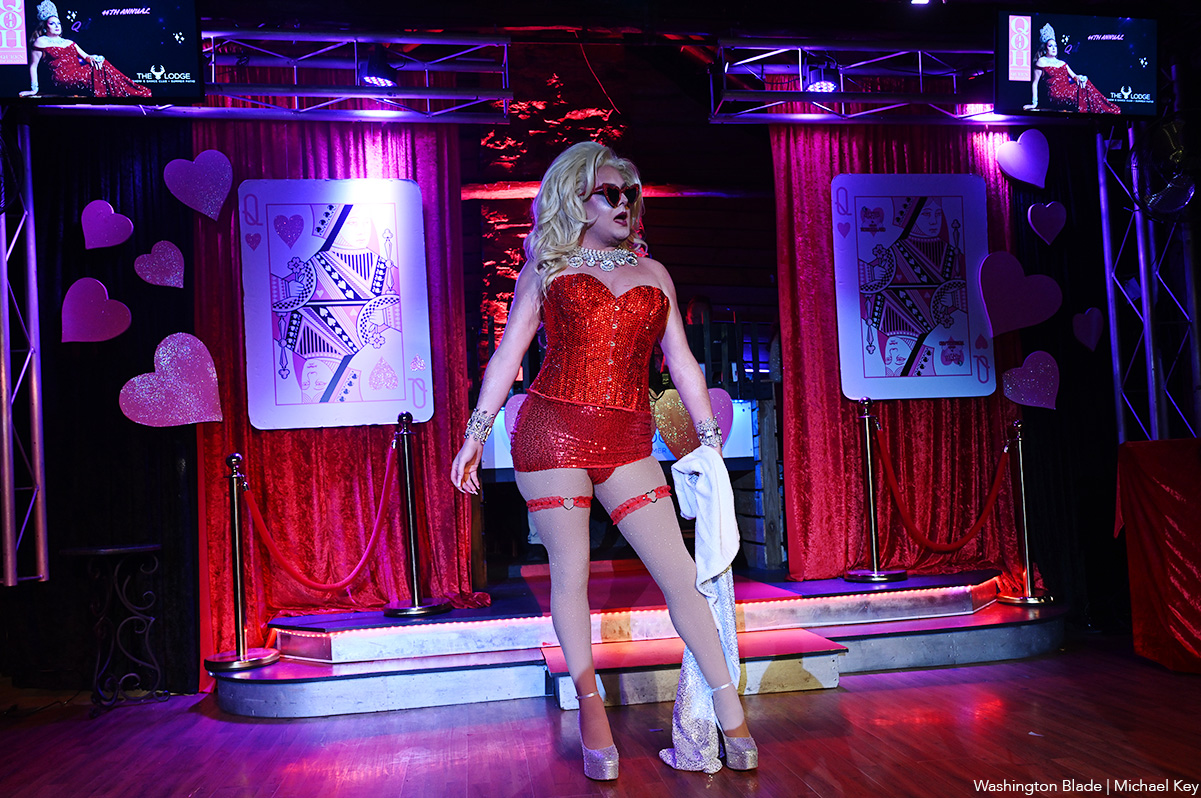
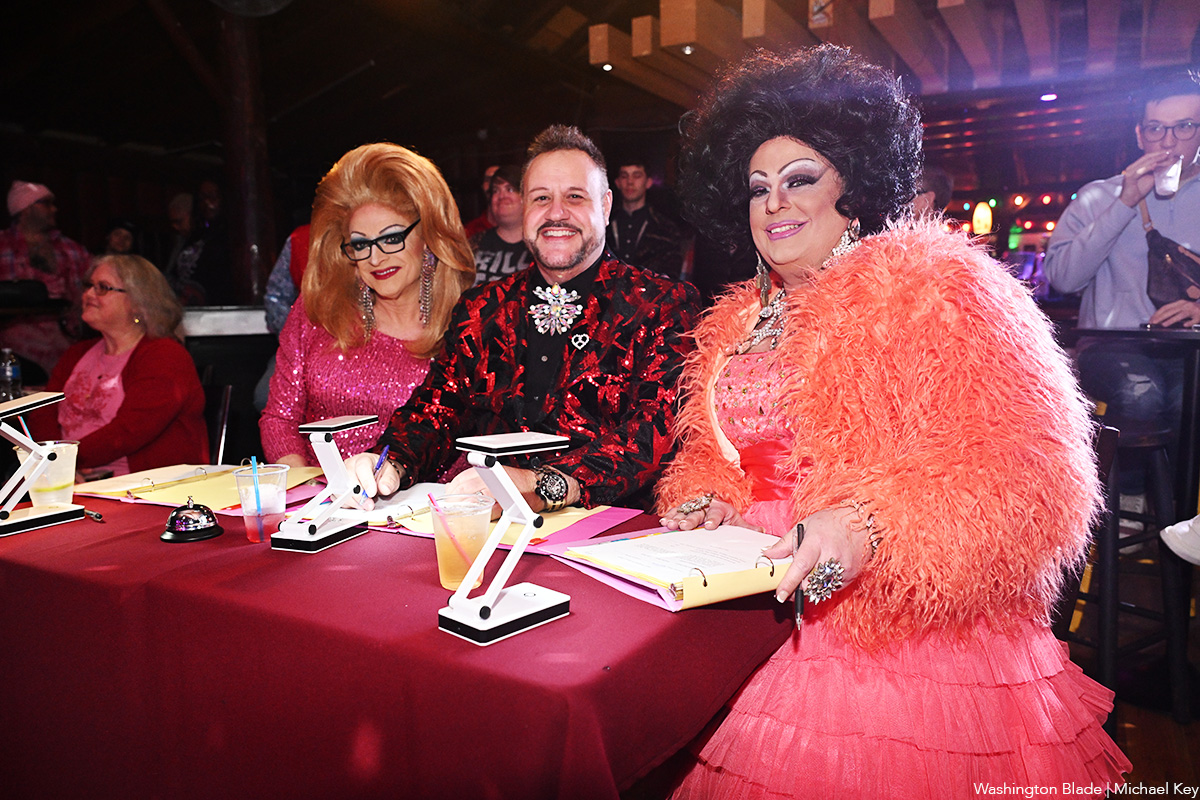
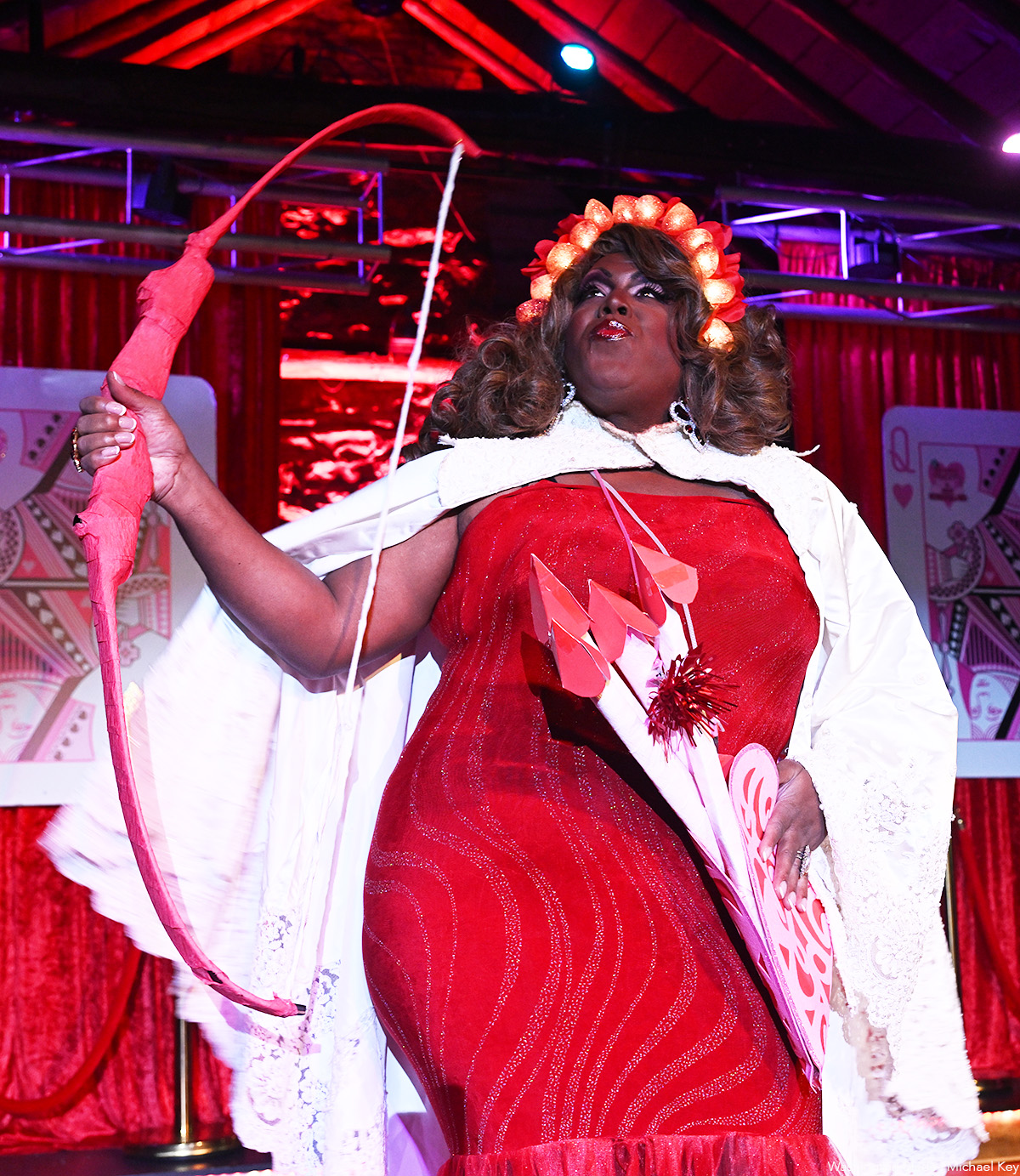
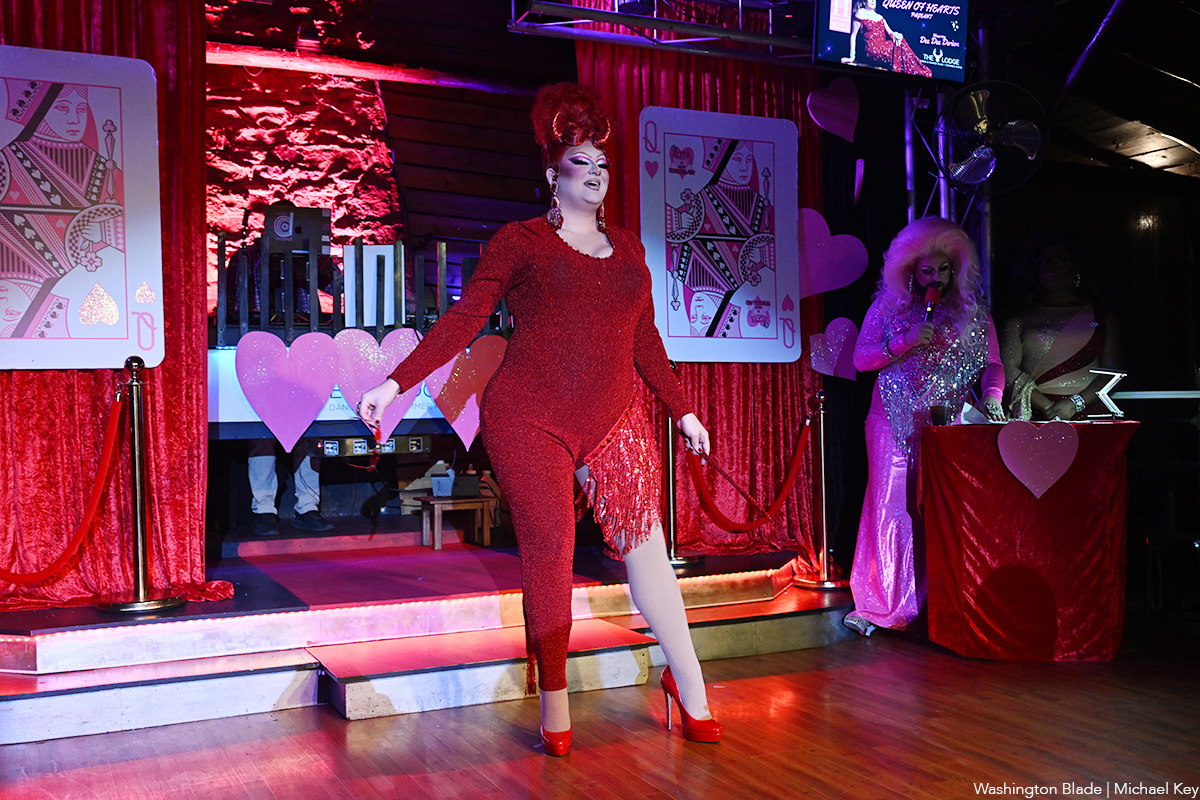
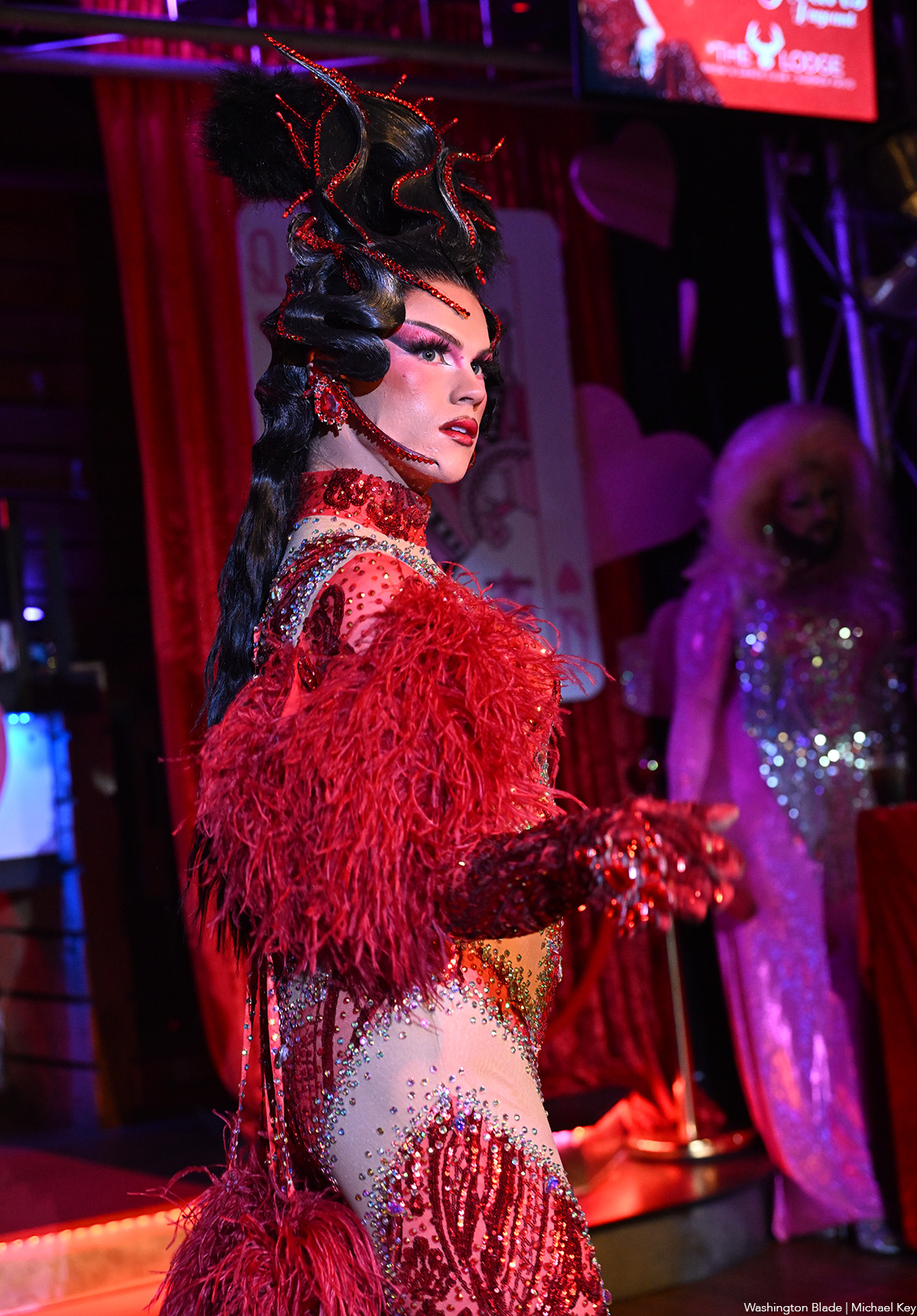
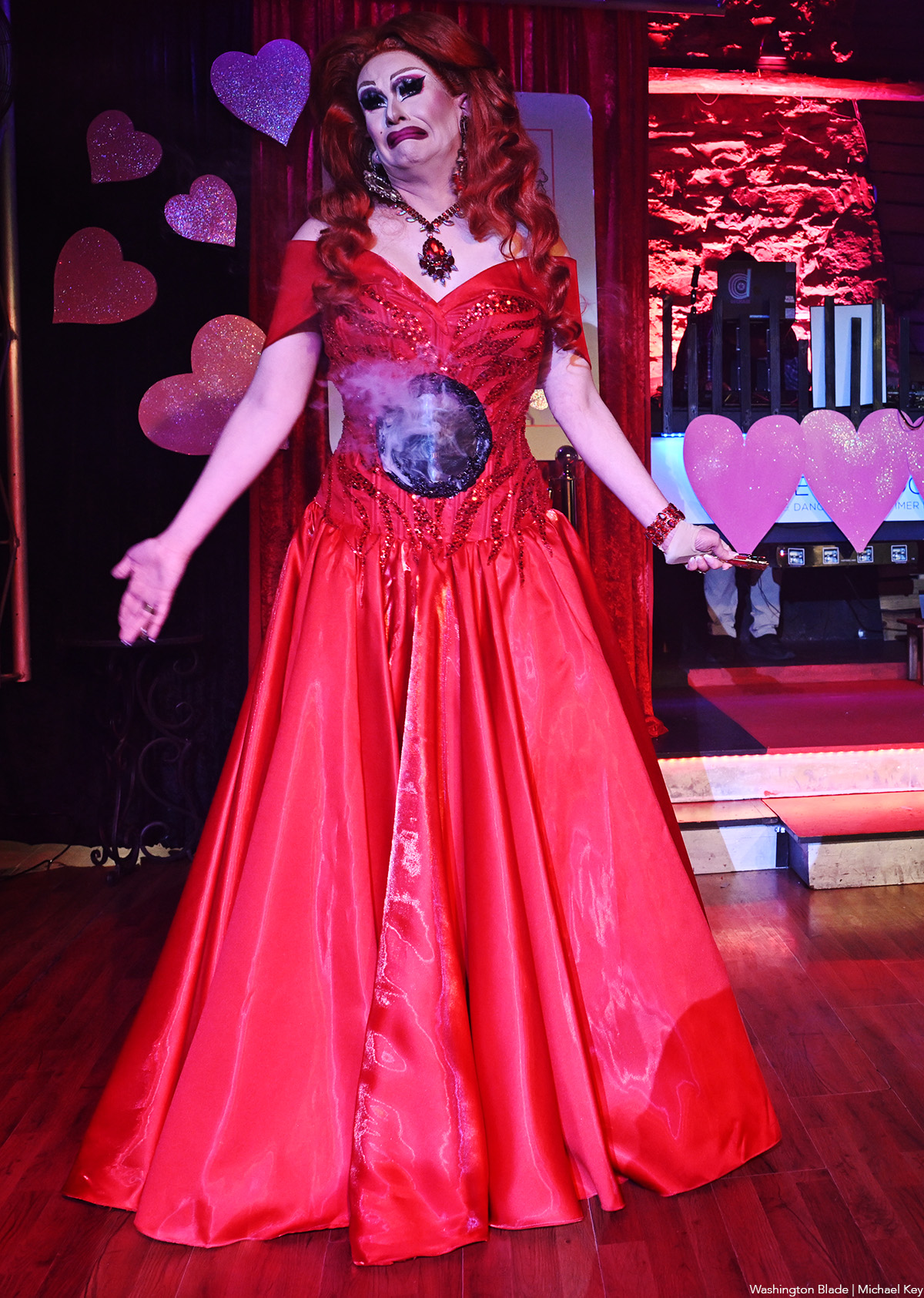
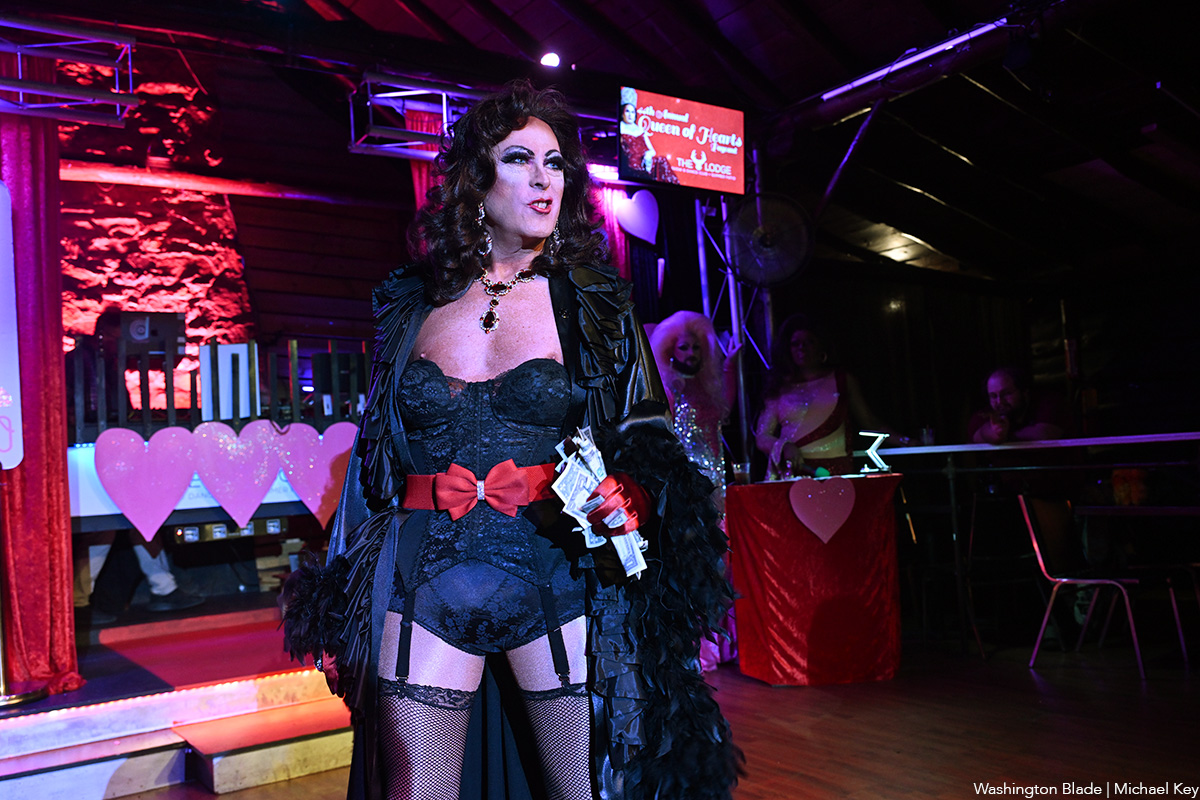
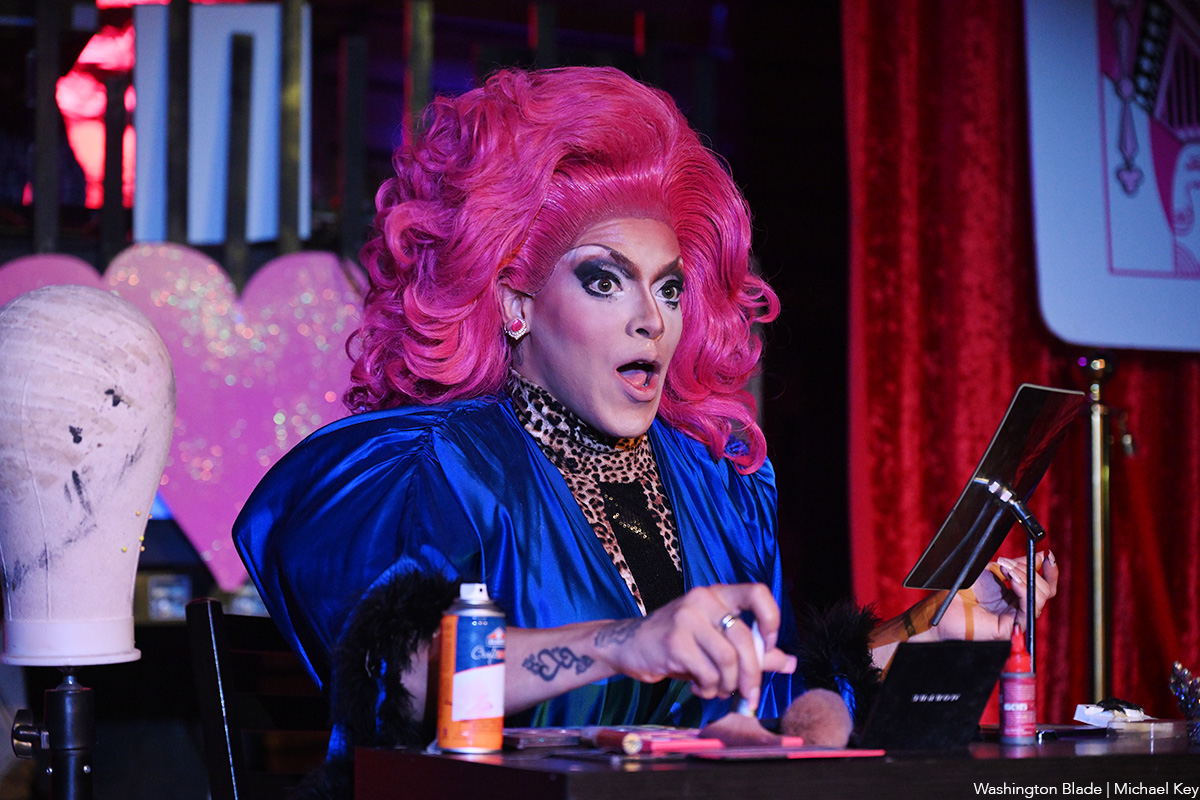



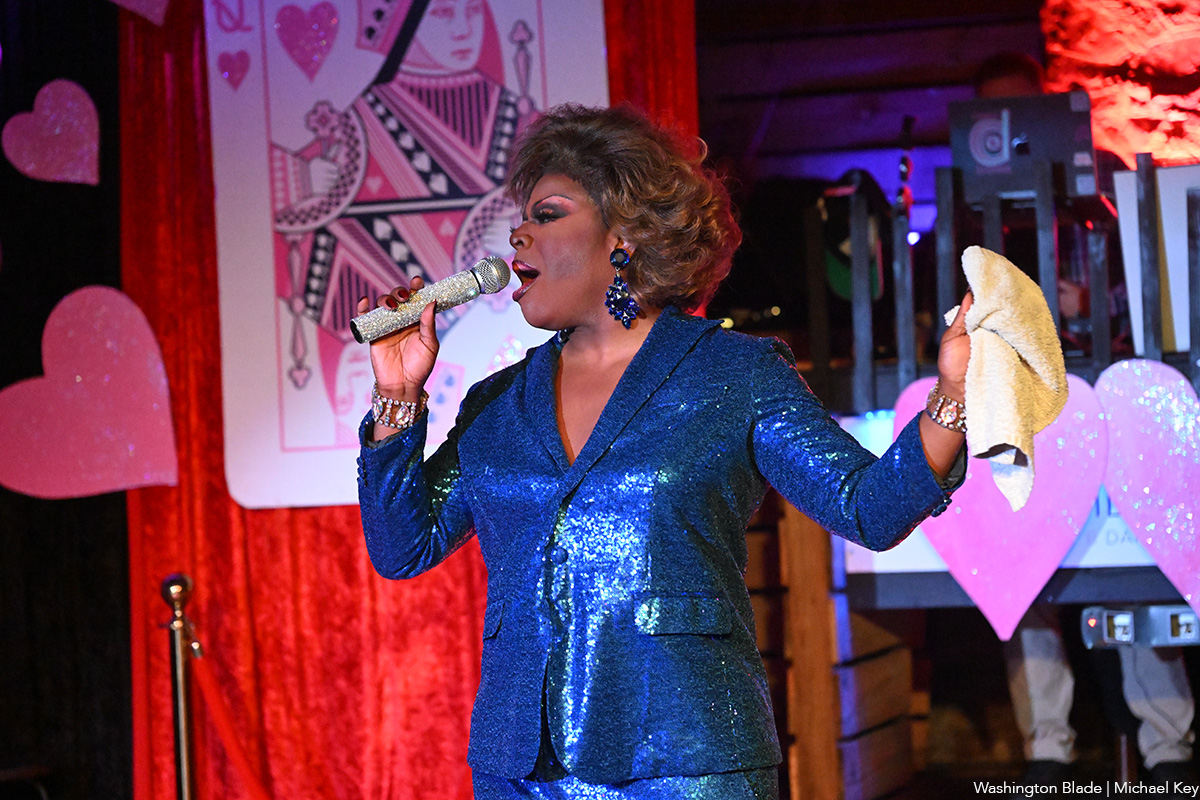

View on Threads
-

 Mexico5 days ago
Mexico5 days agoUS Embassy in Mexico issues shelter in place order for Puerto Vallarta
-

 Real Estate5 days ago
Real Estate5 days ago2026: prices, pace, and winter weather
-

 Theater5 days ago
Theater5 days agoJosé Zayas brings ‘The House of Bernarda Alba’ to GALA Hispanic Theatre
-

 Netherlands4 days ago
Netherlands4 days agoRob Jetten becomes first gay Dutch prime minister


